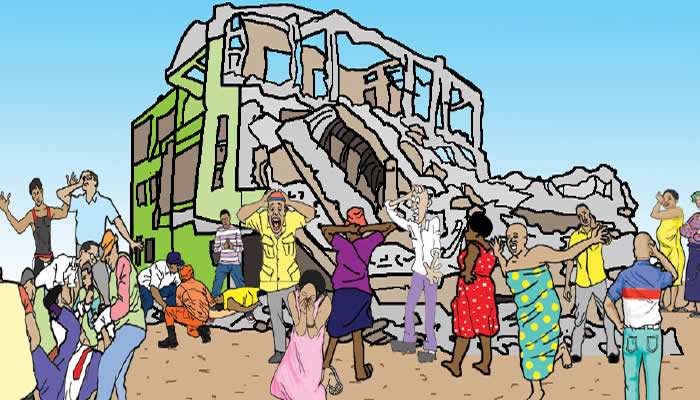
Three Factors Confirming the Collapse of the Sudanese State
moatinoon
The conflict in Khartoum between the Sudanese army and the Rapid Support Forces (RSF) continues to escalate on all fronts, with an increase in the intensity of military battles in terms of type and scope. Infantry battles have faded, and heavy artillery shelling and drones have become prominent elements of the fighting in Khartoum, Omdurman, and Khartoum Bahri, as well as in South Darfur.
With the absence of a peaceful solution on the horizon and the difficulty of achieving a military victory in urban warfare, according to military analysts, the crisis in Sudan is worsening day by day. Civilian casualties and displacement persist as the conflict rages on.
Collapse of the Healthcare System
Sudanese citizens continue to suffer from severe shortages of food, the collapse of the healthcare system, and the lack of medical services in war-affected areas. The situation is no better in the rest of Sudan, where life-saving drugs are scarce, and the healthcare workforce is limited. Additionally, humanitarian relief efforts face numerous obstacles.
In Gedaref State in eastern Sudan, dengue fever has spread epidemically. Local health authorities have been slow to intervene, leading to the suffering of patients. The number of dengue fever cases has exceeded 3,000, with over 200 fatalities. Hospitals are overcrowded, and homes have been transformed into makeshift healthcare units. Treatment is scarce and expensive, with many turning to the black market for medication.
At the same time, the early signs of a cholera outbreak have emerged in Khartoum and Al Jazeera States. The Sudanese Doctors Union had previously warned about the worsening health problems due to epidemics, and they accused the Federal Ministry of Health of failing to pay healthcare workers and cited strikes in major hospitals in Port Sudan and Kordofan.
Measles has also spread across ten Sudanese states due to low vaccination rates, with over 80% of the cases reported in refugee camps in White Nile State, where the number of infections has surpassed 3,000.
The United Nations recently announced that around 1,200 children have died from measles and malnutrition in nine refugee camps in Sudan since last May.
Malaria has also spread widely in El Fasher, the capital of North Darfur State, due to a significant shortage of medications. The number of cases has reached 13,000 in El Fasher alone.
National Currency Collapse
Economically, the Sudanese currency has lost 40% of its value due to the ongoing war and a surge in foreign exchange speculation. This has happened without any effective controls to prevent its collapse. All of this is occurring amid skyrocketing prices in Sudans markets, where thousands of families struggle to afford daily meals. There has been an alarming increase in begging, theft, and looting, even in states untouched by the war, with a complete absence of security.
Government Corruption
Observers accuse the government of turning a blind eye to widespread corruption within its institutions since the October 25, 2021 coup. The situation worsened after the outbreak of the war.
Humanitarian aid and its distribution have also been plagued by significant corruption. Eyewitnesses have reported that much of the humanitarian food aid is being sold in markets, despite being stockpiled in local warehouses without distribution to those in need.
Institutionalized corruption is an inheritance from the previous regimes institutions and has intensified since the coup by General Abdel Fattah al-Burhan and General Mohamed Hamdan Dagalo (Hemetti) on October 25, 2021.

